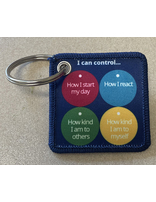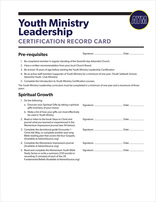 Answer: Let me see if I can come up with some of the verses you might have read or heard about from others on this topic. Then we’ll take a look at the bigger picture to figure this out. Sometimes a single text can be very helpful, but sometimes one isolated text from the Bible doesn’t tell the whole story.
Answer: Let me see if I can come up with some of the verses you might have read or heard about from others on this topic. Then we’ll take a look at the bigger picture to figure this out. Sometimes a single text can be very helpful, but sometimes one isolated text from the Bible doesn’t tell the whole story.Acts 16:30, 31: “He then brought them out and asked, ‘Sirs, what must I do to be saved?’ They replied, ‘Believe in the Lord Jesus, and you will be saved—you and your household.’”
Romans 10:9: “If you confess with your mouth, ‘Jesus is Lord,’ and believe in your heart that God raised him from the dead, you will be saved.”
2 Chronicles 7:14: “If my people, who are called by my name, will humble themselves and pray and seek my face and turn from their wicked ways, then will I hear from heaven and will forgive their sin and will heal their land.”
Matthew 6:14, 15: “If you forgive those who sin against you, your heavenly Father will forgive you. But if you refuse to forgive others, your Father will not forgive your sins” (NLT).1
Do these verses in the Bible contradict each other? Is salvation a matter of believing you are forgiven, or is there a list you check off first?
I think that the broader view of belief and salvation has to do with how you relate to God. If you relate to God as a police officer, then you’ll take a by-the-book approach. For example, you’ll want to know the date and time when you “believed.” As long as you do that, legally God has to save you, right? You may want to have photos taken and witnesses on hand so that you can prove your salvation later if you need to.
But if you relate to God as a positive parent instead of a police officer, then you’ll take a long-term approach, since it’s an ongoing relationship. For example, buying groceries or paying rent to stay in your own house might not enter your mind—that’s what your parents do! But what do you have to do to believe that? As their child, that’s just the way it is.
Your parents might ask you to vacuum or take out the garbage or do the dishes. You don’t have to ask, “Which one of these do I have to do in order to be your child?” Helping around the house just comes with being part of the family.
Even though your parents aren’t perfect, the things that they “make you do” are often for your benefit as you become increasingly independent. Even when you’re “on your own,” you’ll still be their child, and they will still be your parents. The relationship dynamics will change, but you will still be related.
Do you relate to God as someone to make an appointment to be with? Or are you with Him all the time? Do you see Him when He pulls you over like a cop, or is He involved throughout your life like your parents?
If Jesus needs to police you, He can do that. But He wants to have a friendship with you (see Revelation 3:20). In an ongoing relationship, Jesus not only forgives you, but He also cleanses you from sin, and your friendship keeps on going. After all, heaven is not primarily about being in a police speed trap where you try to avoid the cops. Heaven is primarily about being with Jesus, your friend.
If I were limited to one verse to respond to your question, it would be 1 John 1:9: “If we confess our sins to him, he can be depended on to forgive us and to cleanse us from every wrong. [And it is perfectly proper for God to do this for us because Christ died to wash away our sins]” (TLB).2
1Scripture quotations marked NLT are taken from the Holy Bible, New Living Translation, copyright © 1996. Used by permission of Tyndale House Publishers, Inc., Wheaton, Illinois 60189. All rights reserved.
2Verses marked TLB are taken from The Living Bible, copyright © 1971 by Tyndale House Publishers, Wheaton, Ill. Used by permission.

















